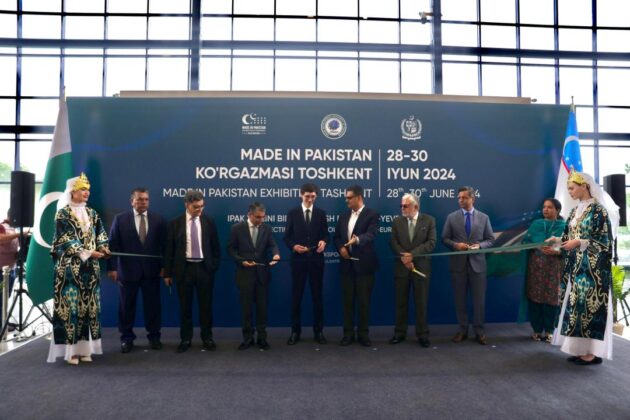Over 80 companies are participating in the First “Made in Pakistan Exhibition” kickstarted in Tashkent, Uzbekistan on June 28, 2024 to showcause pakistani products aimed at enhancing bilatral trade and establish longlasting business partnerships.
The exhibition, which will continue till June 30, 2024, was organized by the Ministry of Commerce Pakistan, Trade Development Authority of Pakistan, and the Embassy of Pakistan in Tashkent with the cooperation of the Government of Uzbekistan.
“Made in Pakistan Exhibition” is an initiative under the Regional Connectivity Policy of the Government of Pakistan to bring businessmen from Pakistan and Uzbekistan under one roof, to explore ways, to enhance trade and establish long-lasting partnerships, said a press release issued here on Saturday.
The event was inaugurated by the Deputy Minister of Industry, Investment and Trade of the Republic of Uzbekistan, Gulamov Shokhrukh Khasanovich along with the Ambassador of Pakistan Ahmed Farooq, Federal Secretary of Commerce Pakistan Ahsan Ali Mangi and Chief Executive, Trade Development Authority of Pakistan Muhammad Zubair Motiwala.
More than 80 Pakistani companies from diverse sectors are showcasing their products in the exhibition and approximately 750 B2B meetings were held with local businesses.
The visitors attending the event expressed interest in Pakistani products and were impressed with the diverse range and quality being offered by Pakistani businesses.
The government representatives from Pakistan and Uzbekistan held fruitful discussions for the promotion of trade and closer economic ties between the two countries.




